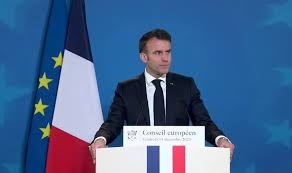France said to float using most powerful EU trade tool on US

Paris: France wants the European Union (EU) to consider deploying its most powerful retaliatory measure against the US for the first time ever if President Donald Trump uses tariffs to unfairly force the bloc into policy changes.
France has joined a small group of EU countries that believes the so-called anti-coercion instrument – a tool designed to strike back against nations that use trade and economic measures coercively – should be on the table, according to people familiar with the matter, even if it isn’t the preferred course of action, one of them said.
The US plans to impose sweeping tariffs on global partners as soon as Apr 2. Trump has said the duties will rectify non-tariff barriers that he says are unfair, such as domestic regulations and how countries collect taxes, including the EU’s value-added tax (VAT). The EU says its VAT is a fair, non-discriminatory tax that applies equally to domestic and imported goods.
The anti-coercion instrument, which is subject to a number of conditions and steps, would eventually allow the EU to deploy a broad range of retaliatory responses, including restrictions on trade and services as well as certain intellectual property rights, foreign direct investment and access to public procurement.
The euro briefly fell below 1.08 against the dollar for the first time in two weeks while German bonds edged higher to leave the 10-year yield two basis points lower at 2.76 per cent.
Trump escalated a global trade war this month by imposing a 25 per cent tariff on steel and aluminium imports, which led the EU to announce its own retaliatory duties on up to 26 billion euros (S$37.8 billion) of politically sensitive American goods. The impending reciprocal tariffs, which would be customised for each trading partner to offset any perceived disadvantage for American companies, could dwarf the metals duties.
Start and end each day with the latest news stories and analyses delivered straight to your inbox.
The European Commission, the EU’s executive arm which handles trade matters for the bloc, is not currently considering the anti-coercion instrument, said another person, who spoke on the condition of anonymity.
Another person said any discussions on using the tool were distant as the EU first needed to see what tariffs the US announces on Apr 2 and whether the anti-coercion instrument was applicable.
The EU’s trade chief Maros Sefcovic said on Wednesday that he has no details on the new US tariffs, and that the commission will need to continue preparations and maintain a flexible approach. Because of that, the EU isn’t expected to immediately set out its response to Trump’s coming measures as quickly as it did with the metals dispute, one of the people said.





